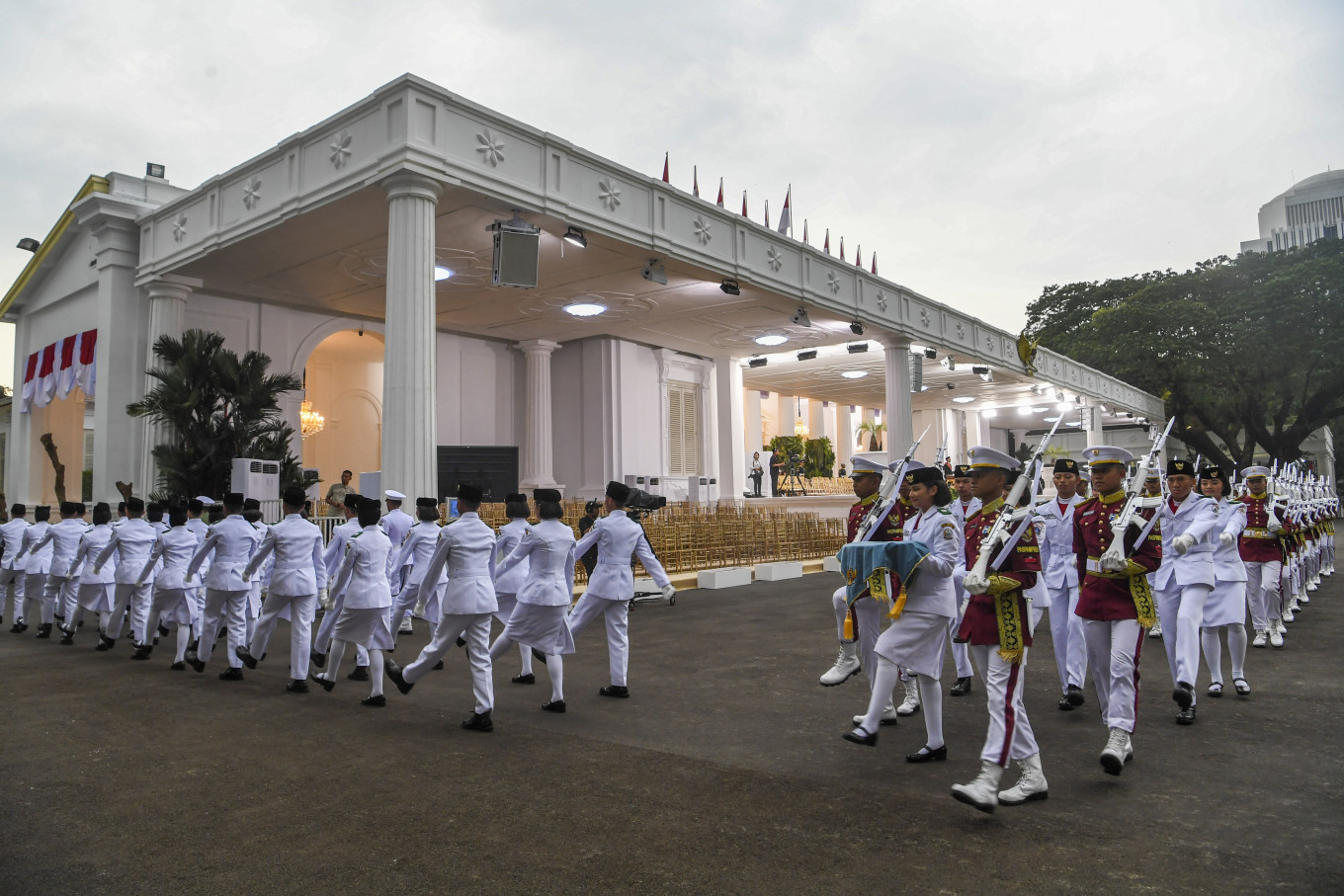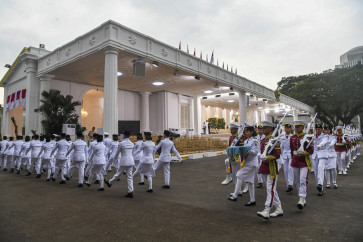Popular Reads
Top Results
Can't find what you're looking for?
View all search resultsPopular Reads
Top Results
Can't find what you're looking for?
View all search resultsIndonesia at 80: A nation adrift, without a moral compass
At the age of 80, Indonesia has reached a crossroads where it must decide which path to take: the one it has trod in the past that benefits only a handful of elite, or a wholly new course to restore its moral compass and pursue prosperity for all.
Change text size
Gift Premium Articles
to Anyone
W
hen it proclaimed independence in 1945, Indonesia was on a par with nations that have today morphed into Asian economic powerhouses, such as South Korea. At 80 years, however, we often appear to be a newly established nation in terms of political morality and governance, with a deeply ingrained colonial mindset.
The 1945 generation fought for independence with bamboo spears and cross-ethnic unity. Today’s generation faces different challenges, such as deeply entrenched corruption, politics that benefit the elite few and a government that is increasingly distant from the people.
Our crisis is not just economic or political, but also involves a loss of moral direction. When the elite justify any means to seek power, when the law serves the ruler and when policies prioritize short-term political gains, the nation has lost its way.
The values of state ideology Pancasila are now mere ceremonial slogans, and social justice is just campaign rhetoric. The younger generation is growing up seeing that integrity rarely triumphs while moral compromise often leads to power. Without serious reform, we risk raising an apathetic and cynical generation distrustful of democracy.
While the nation's founders viewed politics as a public mandate, today’s elite often sees it as an inheritance. Political dynasties are a common phenomenon: From the national to regional levels, positions are passed down to family members. In elections, lineage often matters more than track records or ideas.
This stifles meritocracy, making it difficult for capable, critical young people with integrity but without financial or family connections to join political parties. Many of them instead choose nonpolitical activism, entrepreneurship or to emigrate.
The government is proud of the 5.12 percent economic growth recorded in the second quarter of 2025, but the public is struggling to feel its effects. Purchasing power is stagnant, food prices are rising and youth unemployment remains high. The rupiah is vulnerable at an exchange rate of around Rp 16,000-16,200 to the United States dollar, and government debt has surpassed Rp 9 quadrillion ($556.7 billion) without improving productive economic capacity.



















